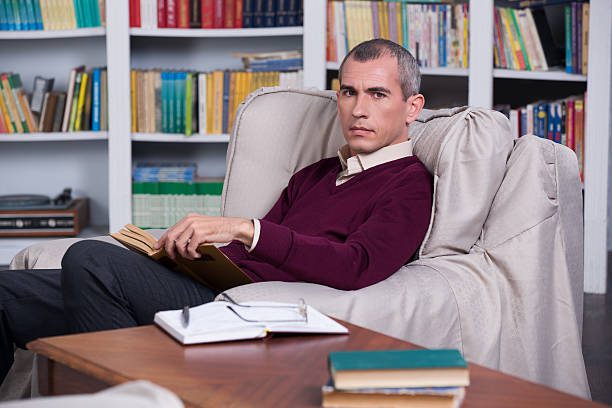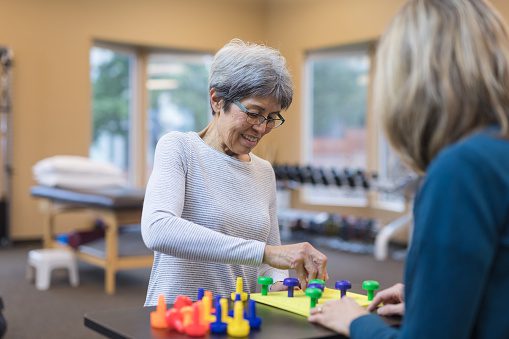
If you like the idea of helping people by attending to their basic welfare, health, and other needs, you might be fit for a career in human services.
That said, “human services” is a broad term, covering a wide range of careers from social worker to probation officer to a psychologist to the physical therapist.
But, perhaps, some of these careers appeal to you. If this is the case, keep reading as you give an overview of some of the most popular human services careers.
1. Interpreter

Why Become an Interpreter?
In a nutshell, interpreters serve as the bridge between two or more parties by translating conversations.
Communication has always been an extremely important skill, and with globalization on the rise, interpreters are as important as ever.
| Interpreter Key Stats | |
|---|---|
| Education | 4+ Years |
| Outlook | 42% |
Read the full career guide: How to Become an Interpreter
2. Social Worker

Why Become a Social Worker?
This career is ideal for people who want to promote the welfare of those in need.
They can work with individuals, with families, or with entire communities.
Because of the immense amount of responsibility, most states require that social workers possess a license and at least a bachelor’s degree in the field.
| Social Worker Key Stats | |
|---|---|
| Education | 3-4 Years |
| Outlook | 8.3% |
Read the full career guide: How to Become a Social Worker
3. Marriage Counselor

Why Become a Marriage Counselor?
Marriage counseling is about helping couples weather through tough times in their relationships.
While this career can be extremely rewarding, it can also be remarkably challenging, especially when a relationship doesn’t survive.
If you think you have what it takes to help couples in crisis, provide individual counseling, and even help family members affected by a breakup, you might be a strong contender for a career as a marriage counselor.
| Marriage Counselor Key Stats | |
|---|---|
| Education | 4+ Years |
| Outlook | 22% |
Read the full career guide: How to Become a Marriage Counselor
4. Sociologist

Why Become a Sociologist?
Ideal for the academically and intellectually inclined, the sociologist career involves studying the dynamics of groups, cultures, organizations, and social institutions.
Their work is essential when it comes to understanding human behavior and, as a result, can contribute to the advancement of many different industries.
Because of the vast amount of research involved, most sociologists possess at least a master’s degree.
Those teaching at the postsecondary level have a PhD in sociology.
| Sociologist Key Stats | |
|---|---|
| Education | 4+ Years |
| Outlook | 5% |
Read the full career guide: How to Become a Sociologist
5. Substance Abuse Counselor

Why Become a Substance Abuse Counselor?
If you have solid communication skills, are caring and empathetic, and enjoy helping people in need, you might want to consider becoming a substance abuse counselor.
This career is, without a doubt, extraordinarily challenging.
After all, you’ll be helping people through some of the most difficult, darkest times in their lives.
Mainly, you’ll be helping them overcome their addictions to alcohol, drugs, and other substances.
Due to the enormous responsibility, you’ll need to be licensed and possess at least a master’s degree.
| Substance Abuse Counselor Key Stats | |
|---|---|
| Education | 4+ Years |
| Outlook | 22% |
Read the full career guide: How to Become a Substance Abuse Counselor
6. Probation Officer

Why Become a Probation Officer?
Probation officers, also known as correctional treatment officers, work with people who have recently been released from prison and help them assimilate back into society.
They also work with convicted criminals who haven’t received a jail or prison sentence but have been put on probation or given a suspended sentence.
Certainly not for the faint of heart, this career is ideal for those who are physically strong, confident, and able to command respect from ex-offenders.
| Probation Officer Key Stats | |
|---|---|
| Education | 4+ Years |
| Outlook | 3% |
Read the full career guide: How to Become a Probation Officer
7. Occupational Therapist

Why Become an Occupational Therapist?
As referred to as OTs, occupational therapists help clients develop new skills that will take their lives to the next level.
You should consider becoming an occupational therapist if you have solid interpersonal skills, a great amount of empathy, and a strong desire to work closely with people.
Conditions your clients might be dealing with include physical, mental, and emotional disturbances.
You’ll work with them to analyze their needs and help them gain new skills, e.g., cooking and using a computer, so they can live better lives.
| Occupational Therapist Key Stats | |
|---|---|
| Education | 3-4 Years |
| Outlook | 18% |
Read the full career guide: How to Become an Occupational Therapist
8. Psychologist

Why Become a Psychologist?
Psychologists work with patients suffering from mental illnesses, provide counseling services, conduct research into human behavior, and help people modify their behavior.
While some work in hospitals and healthcare facilities, others work in their own consulting offices.
If you’re interested in human behavior, possess strong interpersonal skills, and enjoy researching, you might want to become a psychologist.
| Psychologist Key Stats | |
|---|---|
| Education | 4+ Years |
| Outlook | 14% |
Read the full career guide: How to Become a Psychologist
9. Hair Stylist

Why Become a Hair Stylist?
When you hear “human services,” you probably don’t think of hairstylists, but since this career involves attending to people’s needs, it definitely counts.
Hairstylists provide clients with grooming services with the help of their creativity, dexterity, and people skills.
If you like the idea of working closely with clients and helping them look their very best, you should consider a career as a hairstylist.
| Hair Stylist Key Stats | |
|---|---|
| Education | 0-6 Months |
| Outlook | 8% |
Read the full career guide: How to Become a Hair Stylist
10. Child Psychologist

Why Become a Child Psychologist?
If you liked the thought of becoming a psychologist, perhaps you’d like to delve a little bit deeper and consider becoming a child psychologist.
Responsible for diagnosing and treating children with mental and learning disorders and emotional problems, child psychologists work in a variety of settings, including health centers, schools, and private therapy clinics.
In the vast majority of cases, you must possess at least a master’s degree, but many jobs require a Ph.D. in psychology.
| Child Psychologist Key Stats | |
|---|---|
| Education | 4+ Years |
| Outlook | 14% |
Read the full career guide: How to Become a Child Psychologist
11. Personal Trainer

Why Become a Personal Trainer?
Personal trainers are passionate about sports and fitness, love working with people, and know a great deal about the health industry.
They often work hand-in-hand with people at the gym, usually giving them advice and helping them achieve their long-term health and fitness goals.
These professionals are employed by fitness studios, gyms, and even schools and hospitals.
Many personal trainers are self-employed.
| Personal Trainer Key Stats | |
|---|---|
| Education | 2-4 Years |
| Outlook | 13% |
Read the full career guide: How to Become a Personal Trainer
12. Massage Therapist

Why Become a Massage Therapist?
As a massage therapist, you’ll be using the power of touch to heal and restore the body, reduce pain, and enhance relaxation.
You might enjoy a career as a massage therapist if you’re interested in health and the human body, have excellent communication skills, and enjoy working closely with people.
| Massage Therapist Key Stats | |
|---|---|
| Education | 0-6 Months |
| Outlook | 22% |
Read the full career guide: How to Become a Massage Therapist
13. Tailor

Why Become a Tailor?
Because most clothing is designed for the masses and uses standard measurements, consumers often end up with clothes that don’t suit their exact measurements.
That’s where tailors come in.
Their job is to make modifications and alterations to ensure better fitting clothes for their clients.
They’re familiar with different fabrics and the best techniques for making alterations.
Sometimes, they even make clothes from scratch.
| Tailor Key Stats | |
|---|---|
| Education | 2-4 Years |
| Outlook | -10% |
Read the full career guide: How to Become a Tailor
14. Physical Therapist

Why Become a Physical Therapist?
Physical therapists work with clients to maximize their strength, movement, and mobility.
People who see physical therapists are usually those experiencing problems with strength and movement due to injury, illness, or aging.
Also known as PTs, physical therapists analyze meetings with clients, analyze their medical history, diagnose their clients, conduct physical examinations, and determine treatment plans.
These plans include exercise, massages, and strength training.
| Physical Therapist Key Stats | |
|---|---|
| Education | 3-4 Years |
| Outlook | 22% |
Read the full career guide: How to Become a Physical Therapist









